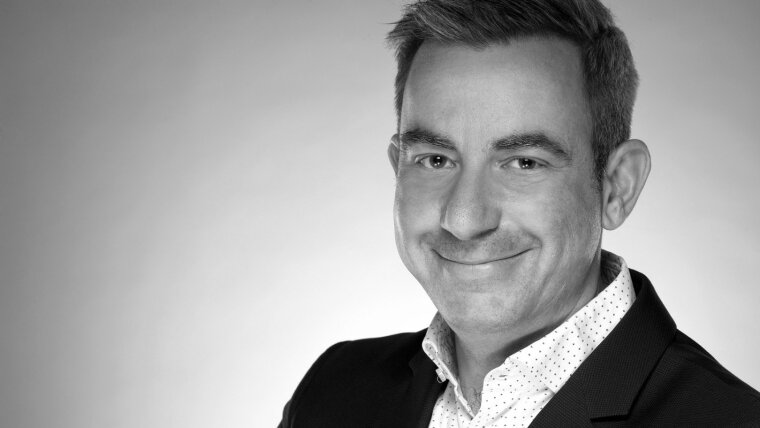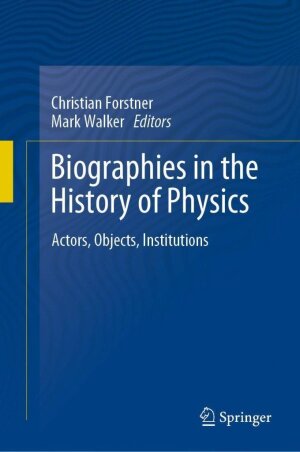
-
Brief Biography
Christian Forstner was Heisenberg Fellow at the Ernst-Haeckel-Haus between 2019 and 2022. He graduated in physics in 2002 and was awarded with a PhD in history of science from the University of Regensburg in 2006 with a thesis on the history of quantum mechanics. This was followed by stays at the Max Planck Institute for the History of Science in Berlin and the Institute for Contemporary History at the University of Vienna. He was a research associate at the Ernst-Haeckel-Haus from 2007 to 2017 and at the Goethe University in Frankfurt am Main (2017/2018). In 2017 he finished his Habilitation at the University of Jena with a study on the history of nuclear physics and technology.
-
Research interests
Christian Forstner’s research focus lied on the history of science and technology in the 19th and 20th century. He asked how science and technology interact with the different parts of society. Two central themes were at the core of all of his projects: the circulation of knowledge and emergence of new knowledge. He examined the most diverse forms of knowledge such as scientific theories, tacit and practical knowledge as well as how knowledge is tied to material objects.
-
Research projects
- Innovation through Knowledge Circulation. Research Technologies as Knowledge Carriers in Circulation Processes in and between Innovation Cultures.
- Digital Knowledge and the Dismantling of Nuclear Reactors.
- A Geography of Knowledge: Historical Sites and the History of Physics in the City of Jena
-
Publications
Buchcover - Christian Forstner (Hrsg.): "Biographies in the History of Physics"
Picture: Verlag: SpringerBooks and edited volumes
- Biographies in the History of Physics: Actors, Objects, Institutions, ed. together with Mark Walker (Springer: Heidelberg, 2020)
- Kernphysik, Forschungsreaktoren und Atomenergie. Transnationale Wissensströme und das Scheitern einer Innovation in Österreich (Wiesbaden: Springer Spektrum Research, 2019).
- Physik, Militär und Frieden. Physiker zwischen Rüstungsforschung und Friedensbewegung, ed. together with Götz Neuneck (Wiesbaden: Springer Spektrum Research, 2017).
- Physik im Kalten Krieg. Beiträge zur Physikgeschichte während des Ost-West-Konflikts, ed. together with Dieter Hoffman (Wiesbaden: Springer Spektrum Research, 2013).
- Physics and Dialectical Materialism, Guest editor of the Jahrbuch für Europäische Wissenschaftskultur 6 (2011).
- Quantenmechanik im Kalten Krieg: David Bohm und Richard Feynman (Diepholz: GNT-Verlag, 2007). Awarded with the Nachwuchspreis der Georg Agricola Gesellschaft 2007.
Selected articles and book contributions
- “The Failure of Nuclear Energy in Austria: Austria’s Nuclear Energy Programs in Historical Perspective,” in: Astrid Kirchhof, Pathways into and out of Nuclear Power in Western Europe Austria, Denmark, Federal Republic of Germany, Italy, and Sweden, Deutsche Museum Studies, Volume 4 (München: Deutsches Museum Verlag 2020): 36-73.
- “Berta Karlik and Traude Bernert: The Natural Occurring Astatine Isotopes 215, 216, and 218,” in: Annette Lyknes and Brigitte van Tiggelen (eds), Woman and their Element (World Scientific, 2019): 350-357.
- „Genial in Gemeinschaft. Zum 100. Geburtstag des Physiknobelpreisträgers Richard P. Feynman (1918-1988),“ Physik Journal 17 (2018) Heft 6: 57-61.
- „Alltagsphysik statt Atombomben. Ein erneuter Blick auf den deutschen Uranverein,“ in Forstner und Neuneck (Eds.), Physik, Militär und Frieden. Physiker zwischen Rüstungsforschung und Friedensbewegung (Wiesbaden: Springer-Spektrum Research, 2017): 51-68.
- „Wissenschaft im Kalten Krieg,“ in: Marianne Sommer, Staffan Müller-Wille, Carsten Reinhardt (Eds.), Handbuch Wissenschaftsgeschichte (Stuttgart: Metzler, 2017), S. 312-324.
- Together with Bernd Helmbold, „Zwei Entwicklungslinien einer Forschungstechnologie: Zur Geschichte der Analytischen Ultrazentrifugen und Gasultrazentrifugen,“ NTM 23 (2015), S. 177–201.
- „Von der Atomzertrümmerung zur zerstörungsfreien Materialprüfung,“ in: Zur Geschichte von Forschungstechnologien. Generizität – Interstitialialität – Transfer. Ed. by Klaus Hentschel, (Diepholz 2012), S. 140-160.
- „Für eine öffentliche Kontrolle der Atomforschung: Die Federation of American Scientists,“ in: Verantwortung von Wissenschaft und Forschung in einer globalisierten Welt. Forschen – Erkennen – Handeln. Ed. by Ulrich Bartosch, Gerd Litfin, Reiner Braun, Götz Neuneck (Berlin 2011), S. 257-272.
- “Dialectical Materialism and the Construction of a new Quantum Theory: David Joseph Bohm (1917-1992)” Minerva 46 (2008): 215-229.
- „Von Märchenfiguren und Schmetterlingen. Rumpelstilzchens helfende Hand bei der Genese des Hofstadter-Butterflys,“ in: Unsichtbare Hände. Zur Rolle von Laborassistenten, Mechanikern, Zeichnern u. a. Amanuenses in der physikalischen Forschungs- und Entwicklungsarbeit. Ed. by Klaus Hentschel (Diepholz: GNT-Verlag, 2008), 205-216.
List of publications - PD Dr. Christian Forstnerpdf, 99 kb · de
Talks
Teaching
Christian Forstner's teaching profile was geared towards representing the subject history of science in its entire breadth, i.e. the history of sciences across all disciplinary boundaries from antiquity to the 20th century. Within this very broad spectrum, he had a clear focus on the historical study of science in the 19th and 20th centuries and the history of physics.
In addition to teaching in the B.A. and M.Sc "History and Philosophy of Science" programs, Forstner held workshops on science as a social system and on the ethics of science for doctoral students as part of the Jena Graduate Academy.
-
Further Activities/ Memberships
Christian Forstner was chairman of the History of Physics division of the German Physical Society from 2011-2022. From 2009 to 2013 he served as vice-president and treasurer of the Commission for the History of Modern Physics of the IUHPS/DHS. He was a reviewer for several journals. Furthermore, he edited the series Studien zur Geschichte der Naturwissenschaft und Technik published by Springer together with four colleagues. From 2007 to 2014 he was responsible for the transfer of the study program in history of science within the Bologna Process. From 2014 to 2017 he was responsible for the Bachelor and Master program in History of Science at the Ernst-Haeckel-Haus. He was also active in committees of the Hans Böckler Foundation.
